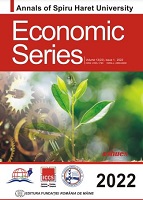The Efficiency of Applying NLP Principles in the Communication Between the Internet of Things and Smart City Citizens
The Efficiency of Applying NLP Principles in the Communication Between the Internet of Things and Smart City Citizens
Author(s): Alexandra RaduSubject(s): Communication studies, Evaluation research, Rural and urban sociology, Economic development, ICT Information and Communications Technologies
Published by: Editura Fundaţiei România de Mâine
Keywords: neuro-linguistic; NLP principles; IoT; sensors; neuro- linguistic programming; quantitative encephalogram;
Summary/Abstract: Cities are expecting massive growth in the coming years; urbanization projects are looking at 2.5 billion more people living in cities. With that kind of growth, city government can no longer afford to lag behind in the digital landscape. Connecting, engaging and fulfilling of services between city and government will need to become increasingly digitized to keep up with rising demand while budgets remain tight, or in the near term, face deep cuts. Digital experiences can be made more efficient when complemented by NLP principles, image recognition and robotics, and these efficiencies translate to better experiences and reduced costs. In addition to larger smart city applications that cover utilities and traffic management, there are many opportunities to improve citizen engagement and city service delivery. Increasing citizen involvement in communication systems involving the idea of Smart City, automatically facilitates the population's access to the Internet of Things and determine assertive behavior, by applying the principles of neurolinguistics in communication between citizens and authorities through the cyber system that includes the citizen.
Journal: Annals of Spiru Haret University. Economic Series
- Issue Year: 22/2022
- Issue No: 1
- Page Range: 153-167
- Page Count: 15
- Language: English

